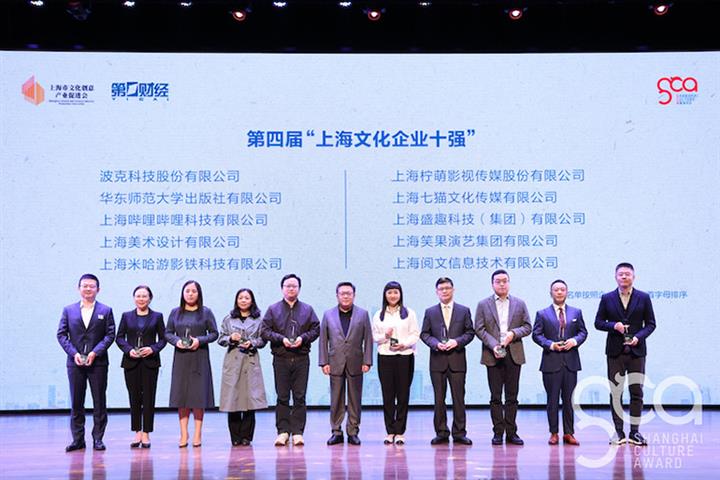 Game Firms Boke, MiHoYo Win Shanghai Culture Awards Amid Doubled Profits
Game Firms Boke, MiHoYo Win Shanghai Culture Awards Amid Doubled Profits(Yicai Global) Nov. 25 -- Ten companies, including game developers Boke Technology and MiHoYo Network Technology, were given prizes at the annual Shanghai Culture Awards as the eastern city's cultural industry shows its resilience amid the Covid-19 pandemic.
The 10 winners, including Bilibili, earned a total of CNY52.2 billion (USD7.3 billion) in revenues, and CNY22.7 billion in profits, and had CNY52.9 billion in net assets last year. The firms that are engaged in games, publishing, films and TV series, as well as entertainment, were selected by the Shanghai Cultural and Creative Industry Promotion Association and financial news outlet Yicai during the fourth Shanghai Culture Awards yesterday.
Revenues and net assets of the top 10 were basically unchanged last year and in 2020 despite the Covid-19 pandemic, and their total profits hit a new record high, more than doubling from the third selection, said Li Rong, vice president of Shanghai Media Group which runs Yicai.
The impressive performance shows that Shanghai's policies to promote the development of the game industry have worked, giving rise to its new nickname, the "City of Game Innovation."
Game firms stepped into the spotlight as four gaming companies made it to the top 10. Eight game entrepreneurs or game company managers were named as some of the Top 10 People of the Year or the Top 10 People of Innovation. Those included Gu Liming, senior vice president of Perfect World, Li Ni, vice chair and chief operating officer of Bilibili; Liu Wei, co-founder of MiHoYo; and Wang Xinwen, founder and chief executive of Lilith Technology.
This year, a new reward category called the Top 10 Cultural Brands was established to highlight innovative and iconic cultural brands. Among the 56 nominees, the winners include the two hit games of the League of Legends Pro League and Genshin Impact.
The gaming industry stimulates the digital economy and the low macroeconomic environment, said Zhang Yi, CEO of iiMedia Research. Games are high-tech endeavors, driving innovation in virtual reality, augmented reality, and simulation, Zhang added.
Chinese firms have learned from foreign cultures such as Japanese games and animations that used to be popular in China, Zhang said, adding that Chinese companies are exploring overseas markets, which will also help the rest of the world to know about the Chinese culture. Evidently, China’s cultural trade with other countries exceeded USD200 billion for the first time last year.
Besides games, the city has prowess in literature. Internet literature and intellectual property will continue to develop to become more competitive, mainstream, and global, Cheng Wu, CEO of China Literature, said at the awards ceremony.
Editors: Shi Yi, Emmi Laine, Xiao Yi